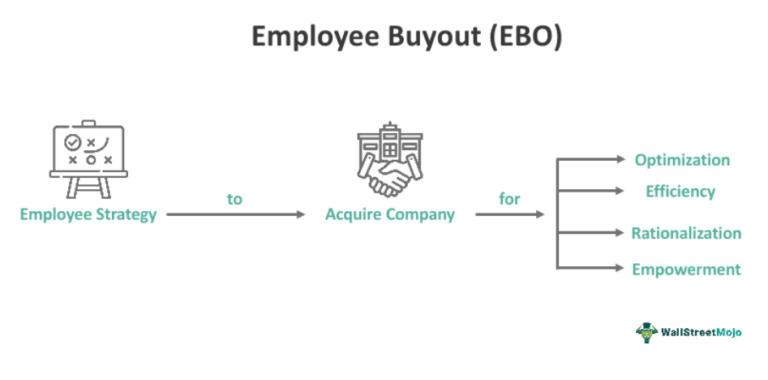
Audience
- Sentiment: Concerned
- Political Group: Democratic
- Age Group: 18-35
- Gender: All
Overview
- The CFPB was created to protect consumers from unfair practices by financial institutions.
- Real-life stories illustrate how the CFPB has helped individuals resolve disputes and obtain refunds.
- The future of the CFPB is uncertain due to potential funding cuts and political criticism.
Consumer Rights Under Threat: The Importance of the Consumer Financial Protection Bureau
Imagine waking up one day to find that your bank has charged you a fee for something you never agreed to. You call them, but you feel like your voice is lost in the sea of customer service options. Frustrating, right? This is where the Consumer Financial Protection Bureau (CFPB) comes into play. Established in the aftermath of the 2008 financial crisis, the CFPB has been a beacon of hope for many consumers. However, its future is uncertain, especially in light of criticism and potential cuts to its funding.
What is the CFPB?
The CFPB was created to protect consumers from unfair, deceptive, or abusive practices by banks, credit card companies, and other financial institutions. Before its establishment in 2011, many people suffered from dishonest practices that devastated their finances, often leading to the loss of homes and savings. The financial crisis opened many eyes to the need for consumer protection. As a result, the CFPB was born—a watchdog that works for the people, ensuring they are treated fairly and respectfully.
Since it opened its doors, the CFPB has tackled more than 7.7 million complaints from consumers. These complaints range from issues with loans and credit cards to disputes with debt collectors. The CFPB serves as a bridge between consumers and financial institutions, helping to bring resolution when issues arise. When someone feels wronged by a bank or lender, the CFPB can intervene, investigate the complaint, and sometimes even get the consumer a refund.
Real-Life Stories of Help
Let’s look at two individuals who have benefitted from the CFPB’s intervention. Jonathon Booth, a recent graduate, faced unexpected fees from his bank when he moved to a new city for work. His bank continued to charge him for a service he never used and didn’t know about. Feeling frustrated and helpless, he turned to the CFPB. Within a short period, the CFPB facilitated a resolution, helping him get a refund and the bank to review their practices.
Then there’s Nurit Baytch, a small business owner who found herself entangled in a dispute with a contractor over faulty work. After several attempts to resolve the issue alone, she turned to the CFPB for assistance. They helped her understand her rights and provided resources that led to a fair settlement. Stories like these are just a couple of examples of how the CFPB has made a difference in people’s lives.
Criticism of the CFPB
While many praise the CFPB, it has not been without controversy. Former President Trump labeled the agency as a source of “waste, fraud, and abuse.” He argued that the CFPB had too much power and was overreaching in its approach. Critics claim that the CFPB’s regulations create more hurdles for businesses, which could stifle growth and innovation. They argue that financial institutions should be free to operate without stringent regulations that they believe hamper their ability to serve customers. This debate raises important questions about the balance between protecting consumers and allowing businesses to thrive.
The CFPB’s Role Beyond Complaints
The significance of the CFPB goes beyond simply resolving complaints. The agency conducts extensive research on consumer finance issues and educates people about their rights. For instance, it publishes reports on trends in consumer credit, mortgage lending practices, and credit card fees. By providing consumers with information, the CFPB empowers them to make informed decisions about their finances.
Moreover, the agency holds financial institutions accountable for their actions. If a bank is found to be engaging in deceptive practices, the CFPB can take action to ensure accountability. This deterrent effect helps to create a more level playing field for consumers and sends a message to financial institutions: dishonest practices won’t be tolerated.
Current Challenges and the Future of the CFPB
Despite its successes, the CFPB faces significant challenges. Critics have pushed for cuts to the agency’s funding, which would severely limit its ability to operate effectively. Staffing reductions could hinder its capacity to investigate complaints and provide timely assistance to consumers. With so much at stake, many supporters of the CFPB are concerned about its future. They argue that a strong, well-funded consumer protection agency is vital as financial markets continue to evolve.
In recent years, we’ve seen a surge in digital banking, mobile payment apps, and online lenders. While these innovations provide new opportunities for consumers, they also introduce different risks. For instance, how do we protect consumers from fraudulent online lenders? How do we ensure that app-based payment systems are secure? Without a strong presence like the CFPB, consumers might be left vulnerable to scams and unfair practices.
Advocacy for Consumer Rights
As we consider the future of the CFPB, it’s essential for consumers to advocate for their rights. Joining forces with organizations that support consumer protection can amplify individual voices. Engaging in conversations, sharing personal experiences, and raising awareness about consumer issues can foster a supportive community. Social media platforms can serve as tools for advocacy, allowing people to share their stories and push for change.
Moreover, as the next generation of consumers—teenagers like you—it’s vital to understand your rights. Knowledge is power! Stay informed about financial literacy, the significance of credit scores, and how to navigate the financial landscape. The more you know, the better you’ll be able to protect yourself and advocate for your rights.
Conclusion
The Consumer Financial Protection Bureau was established to ensure that consumers have a voice in the financial marketplace. While the agency has been instrumental in resolving disputes and protecting consumer rights, its future remains uncertain due to political pressures and funding challenges. As discussions around consumer protection continue, it’s crucial for individuals to understand the importance of the CFPB and advocate for its existence.
Do you believe that consumer protection is essential, or do you think regulatory agencies like the CFPB hold back businesses? Have you ever experienced a situation where a financial institution treated you unfairly? Share your thoughts and experiences in the comments below! Your voice matters, and together we can make a difference in the conversation about consumer rights.





